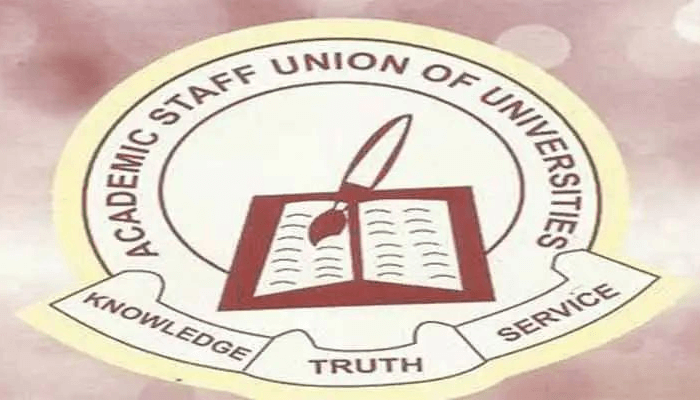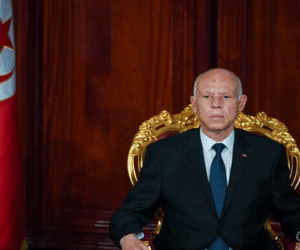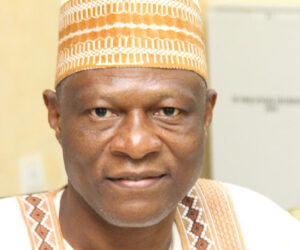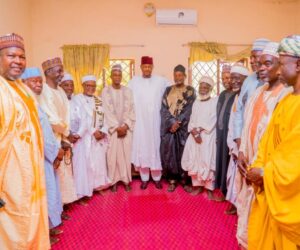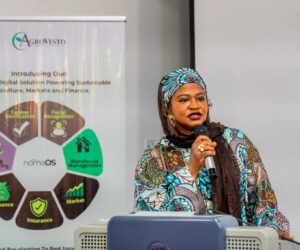The 2009 agreement between the Academic Staff Union of Universities (ASUU) and the federal government has remained a focal issue in the recurring disputes that have plagued Nigeria’s higher education.
At the heart of ASUU’s demands are key provisions in the deal aimed at revitalising public universities, improving staff welfare, and ensuring sustainable funding for research and infrastructure.
Despite repeated negotiations and promises, much of what was agreed upon remains unimplemented, fuelling continued unrest in the academic system.
Christopher Piwuna, president of ASUU, on Tuesday, reinstated the position of the union over the agreement with the federal government.
Read also: Abuja ASUU joins counterparts, protests unpaid salaries, wage arrears
Piwuna said ASUU has been asking for the re-negotiation of the 2009 ASUU-FGN agreement, sustainable funding of universities, revitalisation of universities, outstanding 25 percent-35 percent salary areas, promotion areas for over four years, and third party deductions.
He emphasised that the federal government made promises on these issues but failed to implement them.
Terms of reference of agreement
According to the 2009 agreement draft, the single term of reference of the committee was to renegotiate the 2001 FGN/ASUU agreement.
In the course of discussion, the committee agreed that the essence of the re-negotiation was to reverse the decay in the university system, reposition it for greater responsibilities in national development, reverse the brain drain by enhancing the remuneration of academic staff and disengaging them from the encumbrances of a unified civil service wage structure. It was also meant to restore Nigerian universities, through immediate, massive and sustained financial intervention, and to ensure genuine university autonomy and academic freedom.
Salary structure
One major agreement reached on ASUU salary structure was a separate salary structure for university academic staff. It would be known as the Consolidated University Academic Salary Structure II (CONUASS II), made up of the Consolidated Salary Structure for Academic Staff (CONUASS) effective January 1, 2007 (FGN Circular SWC/S/04/S.309/1, dated January 18, 2007);
and the Consolidated Peculiar University Academic Allowances (CONPUAA) exclusively for university teaching staff and derived from allowances not adequately reflected or not consolidated in CONUASS and rent, effective January 1, 2007 (FGN Circular SWC/S/04/S.309/1, dated January 18, 2007).
Earned academic allowances
It was agreed that entitled academic staff would be paid the following earned allowances at rates indicated for undertaking the listed assignments.
They included: Postgraduate supervision allowance. Lecturer I tutors were to receive N15,000 per student per annum, while senior lecturers were entitled to N20,000 per student per annum. Each reader or professor was to get N25,000 per student, per annum.
This allowance would be paid to the entitled academic staff for a maximum of five students per annum.
For the teaching practice/industrial supervision/field trip allowances, tutors on lecturer I level would get N60,000 per annum, while senior lecturers were to receive N80,000 per annum. Each reader or professor would get N100,000 per annum.
Where the work involves travelling out of town, the usual mileage and night allowances would be paid in line with the existing government regulations.
Also, where a staff member was involved in more than one of the above activities in a given year, he or she shall be remunerated separately for each activity.
Honoraria for external/internal examiner (postgraduate thesis)
An external examiner supervising master’s degree students was to receive N80,000 per thesis, while a lecturer overseeing doctorate theses would receive N105,000 for one academic dissertation.
For master’s degrees, a lecturer would get N45,000 per dissertation, and N65,000 for a doctorate degree thesis.
Honoraria for external moderation of undergraduate and postgraduate examinations were also specified. Honoraria for a lecturer supervising up to 50 undergraduate candidates would get N60,000, while anyone overseeing more than 50 candidates was to get N80,000. Any lecturer supervising up to 10 postgraduates candidates was to get N60,000, with a tutor overseeing more than 10 candidates receiving N80,000, among others.
Read also: ASUU protest gains momentum as UNILAG, UNN, others join
Why strikes persist
Boye Ogundele, an educator, attributed the frequency of the strikes to poor remuneration and a lack of good incentives, among others.
“The lecturers are poorly paid in Nigeria than their counterparts in civilised and organised countries. The government is not sincere when it signs an agreement with ASUU. The government breaks the rules at will, promises and fails, which is unhealthy,” he said.
Ogundele said the only solution to the ASUU strike is for the government to declare a state of emergency on education in Nigeria and ensure it restructures the whole system – both human and material resources.
Kayode Soremekun, a former vice-chancellor of the Federal University Ado-Ekiti, said it is obvious that dialogue with the government has not really been productive for ASUU.
“I think ASUU is saying that over time, the union engaged the federal government in dialogue, and this has not yielded the needed result. However, the union is open to any viable approach to resolving its impasse with the government,” he noted.
Speaking on the frequency of ASUU strikes and the concomitant effects on students, Shola Kayode, an educationist, said that industrial actions by the lecturers do nothing but disrupt life, waste time, and lengthen students’ academic calendar.

